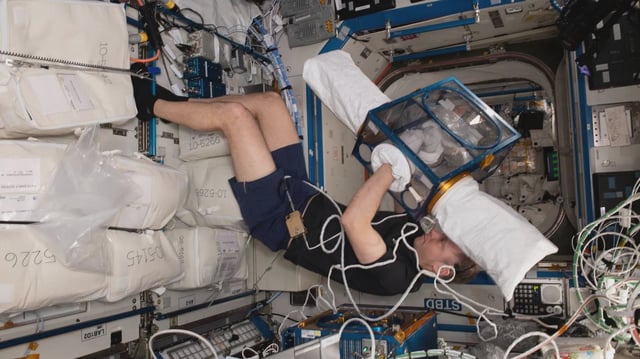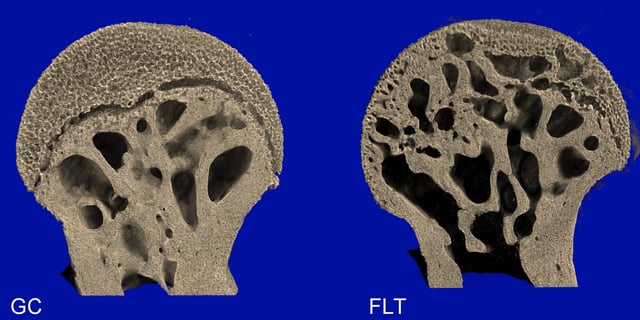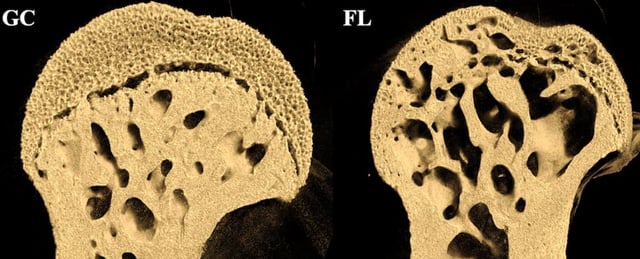Overview
- Mice aboard the ISS for 37 days experienced significant bone loss in weight-bearing bones like femurs, while non-weight-bearing bones remained unaffected or even became denser.
- The study ruled out systemic factors such as radiation, identifying the lack of weight-bearing activity in microgravity as the primary cause of bone deterioration.
- Microgravity disrupts the balance between bone-forming osteoblasts and bone-degrading osteoclasts, with osteoclasts becoming overactive, accelerating bone loss.
- Young mice showed signs of premature ossification in their femurs, potentially stunting bone growth during skeletal maturation.
- NASA emphasizes the need for exercise-based countermeasures, such as weight-bearing devices, to protect astronauts' bone health during extended space missions.


